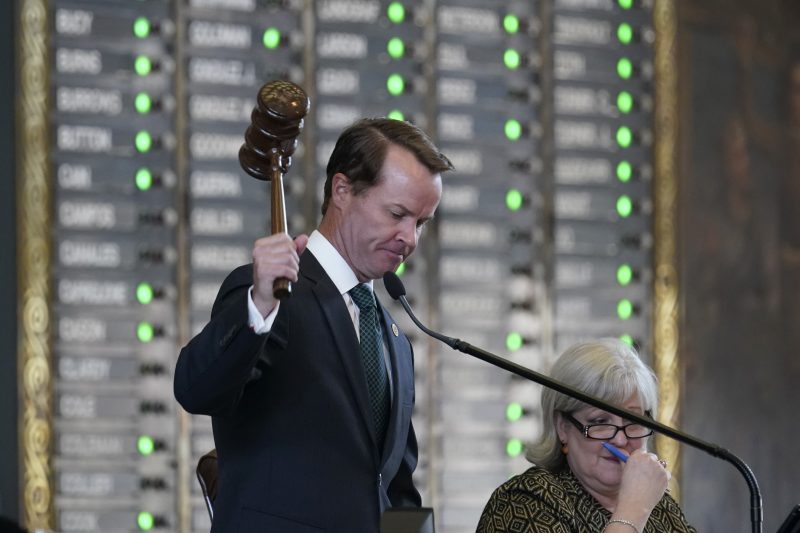
Texas House Speaker Defeats Trump-Backed Challenger in Thrilling Battle!
The recent political battle for the Texas House Speaker position has captured the attention of many as the incumbent, Dade Phelan, managed to survive a strong challenge from a candidate backed by former President Donald Trump. This showdown not only highlighted the internal dynamics within the Republican Party but also showcased the evolving influence of national figures in state-level politics.
At the heart of the conflict was the clash between traditional leadership and Trump-inspired populism. Phelan, who has been viewed as a more moderate and consensus-building figure, was confronted by a challenger who aligned closely with the former president’s agenda. This divide echoes the larger schism within the Republican Party, where loyalty to Trump is often seen as a litmus test for candidates.
The outcome of this battle signifies a crucial victory for Phelan and his leadership style. By retaining his position as House Speaker, he has not only solidified his standing within the party but has also demonstrated the resilience of a more pragmatic approach to governance. In an era where political discourse is often dominated by extreme positions and ideological purity tests, Phelan’s ability to navigate these turbulent waters with a focus on cooperation and compromise is a noteworthy achievement.
Furthermore, the fact that Trump’s endorsement did not guarantee victory for Phelan’s rival suggests a nuanced shift in the dynamics of political influence. While the former president remains a powerful force within the Republican Party, his influence is not always a determining factor in every race. This development underscores the complexity of modern political campaigns, where candidates must balance the demands of their constituents with the expectations of national figures.
Looking ahead, the aftermath of this contest could have lasting implications for the GOP in Texas and beyond. The party is poised to continue grappling with questions of identity and direction, as different factions vie for control and influence. The outcome of the Texas House Speaker race serves as a microcosm of these broader struggles, offering insights into the fault lines that define contemporary conservative politics.
In conclusion, the battle for the Texas House Speaker position represents a significant moment in the ongoing evolution of the Republican Party. By navigating the challenges posed by a Trump-backed candidate, Dade Phelan has reaffirmed the relevance of pragmatic leadership in a political landscape characterized by polarization and division. As the GOP continues to define its identity in the post-Trump era, the lessons learned from this contest are sure to inform future battles and decisions within the party.
